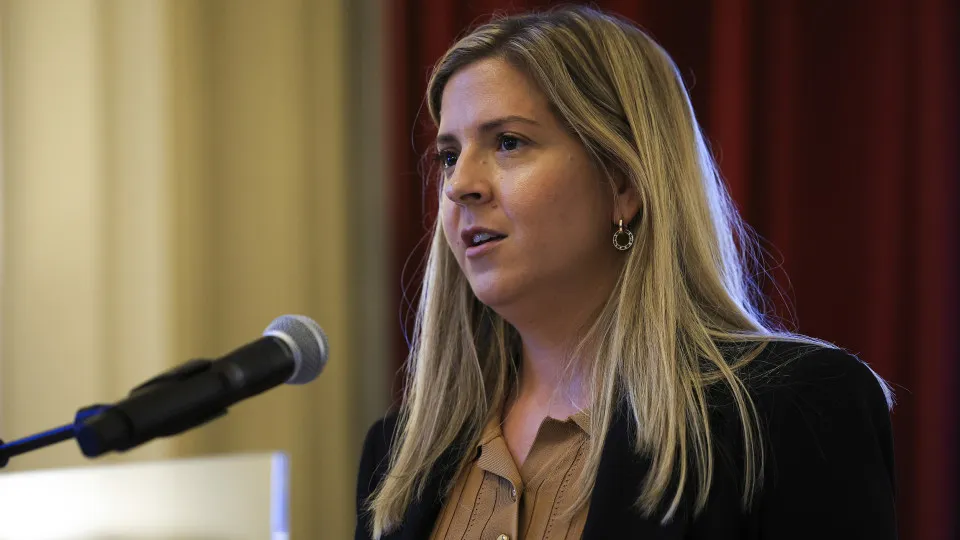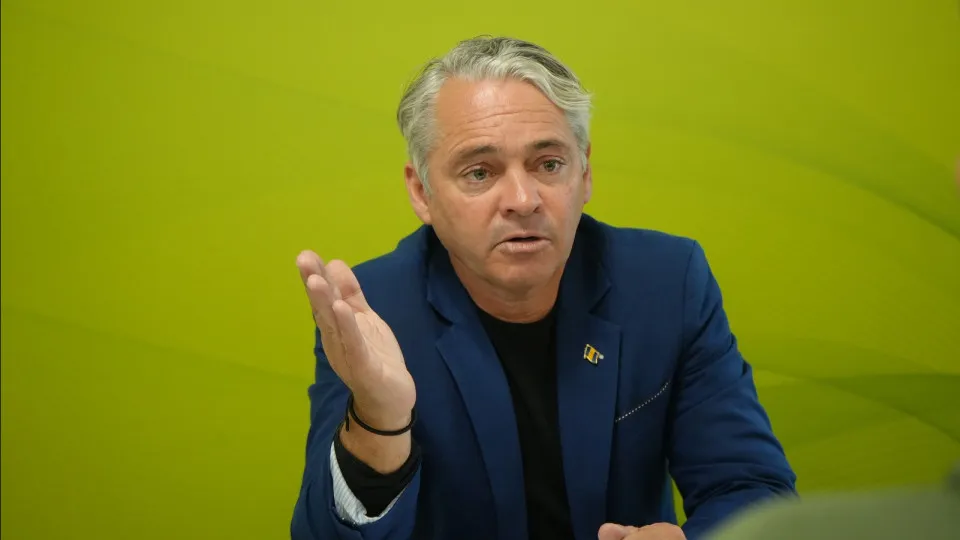
“It naturally makes sense. We are aware that we operate in a global market and must remain competitive, which involves being more competitive from a tax perspective. Obviously, the topic of galleries is part of this context,” stated the Minister of Culture, Youth, and Sports to journalists on the sidelines of the 1st Culture Forum, taking place today at the Belém Cultural Center (CCB) in Lisbon.
The Culture Forum, organized by the ministry to promote a “collective, constructive, and inclusive reflection” on the sector, includes the participation of professionals from various cultural fields.
In an open session, art gallerist and president of Exibithio– Associaçāo Lusa de Galeristas, Vera Cortês, reiterated a request previously made to former minister Dalila Rodrigues: to reduce the VAT on art transactions from the maximum to the minimum rate—from 23% to 6%.
The gallerist expressed disappointment that this change is not included in the government’s proposed 2026 State Budget “despite all the conversations” Exibithio had with both Margarida Balseiro Lopes and parliamentary groups.
Speaking to journalists, the minister explained that “this is a matter the government cannot decide unilaterally, as any kind of tax reduction must necessarily pass through Parliament.”
“This is a matter within the competence of the Assembly of the Republic. Next week, we have the general debate, followed by the specialized sessions. It is up to the parliamentary groups to discuss and potentially approve this matter,” she stated.
On March 11, the first government of Luís Montenegro approved a decree partially transposing an EU directive concerning VAT rates, altering the special taxation regime for second-hand goods, artworks, collectibles, and antiques.
The transposition of this European directive, much anticipated, especially by art galleries and artists, would allow reducing VAT to 6%, a rate currently only applicable in Portugal when transactions are conducted by artists or rights holders.
Although the decree took effect on March 24, art transactions continued to be subject to the maximum VAT rate of 23%.
Effective January 1, the EU Directive 2022/542 aims to standardize Member States’ VAT systems, which have been using a complex system with varying rates.
A week before the government’s approval of the decree, then Minister of Culture Dalila Rodrigues called the reduction of VAT for art galleries a fundamental priority and expressed the hope for a “favorable and prompt response” from the Finance Minister to this initiative.
“This is our priority and must be considered shortly […] in the next State Budget, without a doubt,” stated Dalila Rodrigues at the time, during a visit to the ARCOmadrid fair.
In the same event, Dalila Rodrigues emphasized that contemporary Portuguese art is experiencing “an important moment,” but acknowledged that “much work remains,” particularly in “encouraging gallery owners and artists.” She considered it “essential to achieve a VAT reduction for gallery owners,” allowing both art gallery owners and artists “to gain more generous compensation” from their activity and “live off their work.”
At the end of May, during the opening of the ARCOlisboa International Contemporary Art Fair, Exibithio organized a protest advocating for VAT to be reduced to 6%. Dalila Rodrigues attended the fair that day but ignored the protest.
On that occasion, Exibithio’s president told Lusa that if VAT on art transactions were not reduced to 6%, numerous Portuguese gallerists might leave Portugal.
“If it’s not feasible [to reduce the VAT rate], we’ll all leave Portugal. Either a resolution is found, or we will resolve it ourselves,” Vera Cortês remarked, adding, “A foreign art piece enters Portugal and pays 6% at Customs, while art produced domestically incurs a 23% VAT.”
The panorama of VAT on art transactions in the EU is highly diverse, with some countries contemplating changes under the directive. Others maintain their rates, such as Spain at 21%, but France and Germany—pioneers in this reform—reduced their rates from 20% and 19% to 5.5% and 7%, respectively.




